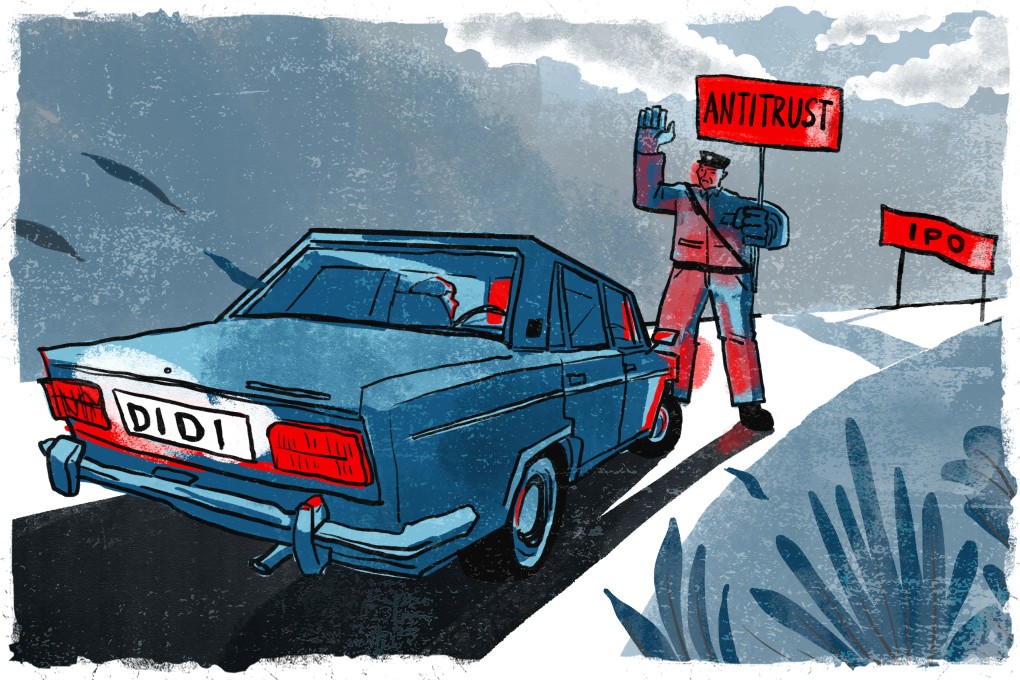Advertisement
Analysis | China antitrust: Didi’s ride hailing dominance prompts scrutiny before it sets forth for its Uber-beating New York IPO
- Didi-Chuxing is putting the finishing touches of its plan to raise up to US$10 billion in New York, in an initial public offering that would value the nine-year-old company at US$100 billion, bigger than Uber
- Didi, with 493 million annual active users globally and 13 million active drivers in China, commands 90 per cent of a ride-hailing market estimated at US$3.9 trillion by 2040
6-MIN READ6-MIN
14

In the third instalment of a four-part series on China’s antitrust crackdown on technology companies, Masha Borak looks at the ride-hailing industry and its dominant operator Didi-Chuxing. The first instalment on streaming music is here and the second instalment on games is here.
On April 30, the day before China was to begin a five-day stretch of public holidays to mark the annual Labour Day, 10 of the country’s largest technology companies were each slapped with a financial penalty by the antitrust regulator for breaching disclosure rules in their acquisitions of smaller competitors.
Among them was Didi Chuxing, the dominant ride-hailing company that outsmarted Uber in China in 2016, which was fined 500,000 yuan for failing to seek regulatory approval to establish new ventures, according to the State Administration of Market Regulation (SAMR). The penalty was the first shot across the bow for a company with 493 million annual active users worldwide on its smartphone application, served by 15 million active drivers, bringing in 141.7 billion yuan (US$22.2 billion) in 2020 revenue.
Advertisement
This week, as Didi was putting the finishing touches on its plan to raise up to US$10 billion in an initial public offering (IPO) in New York, China’s antitrust regulators began an investigation into the business practices of the company that commands 90 per cent of China’s ride-hailing market, estimated to balloon to US$3.9 trillion by 2040, according to a Reuters report that cited three people familiar with the matter.
“Didi will not comment on the unsubstantiated speculation from Reuters’ unnamed sources,” said the company.
Advertisement
“Didi is now under close scrutiny by a whole host of regulatory authorities,” said Angela Zhang, director of the Centre for Chinese Law at the University of Hong Kong. “If Didi fails to adapt to the demands from these regulators, I believe there will be further escalation of regulatory actions.”

Advertisement
Select Voice
Select Speed
1.00x